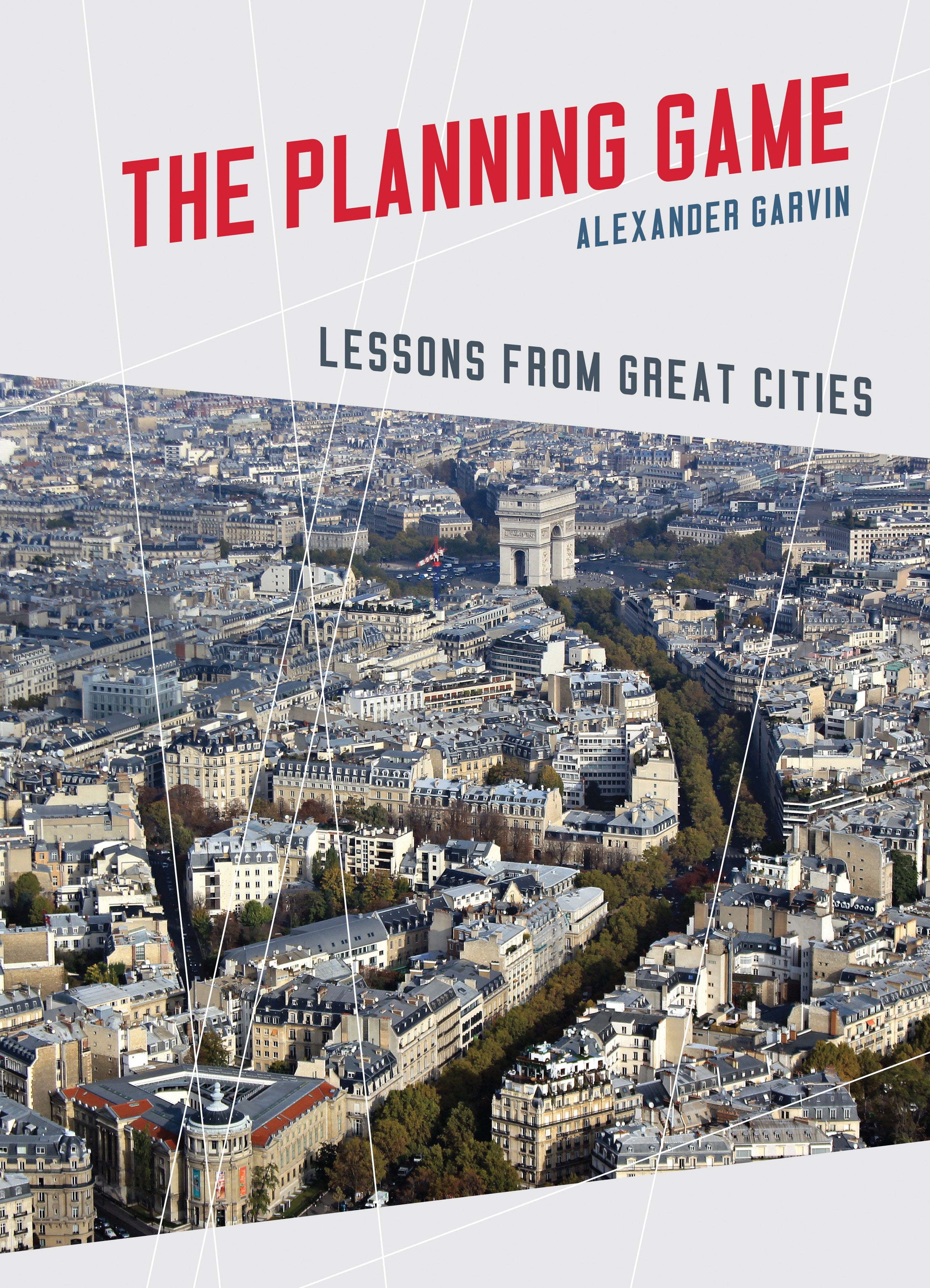Philly’s great at “The Planning Game”

Great city plans require great men, with strong wills and sturdy stomachs for politics, Alexander Garvin believes. And he should know. This planner, author, and long-time instructor at Yale University briefly served, for 15 months, as vice president for planning, design, and development of the Lower Manhattan Development Corp, the agency responsible for redeveloping the World Trade Center site — a politically charged position if there ever was one.
On Wednesday night, Garvin spoke before a surprisingly small group at the Center for Architecture and offered a cursory look at “The Planning Game” (the title of his latest book) through the stories of four great men and the cities they reinvented: Baron Georges-Eugene Haussmann and Paris, Daniel Burnham and Chicago, Robert Moses and New York, and Edmund Bacon and, well, you know.
“This is a tough, tough business that they’re in,” he said, indicating the Center City District’s Paul Levy and the city’s Alan Greenberger, who sat silently in the audience.
Sporting a red polka dot bow tie and adapting a professorial tone, Garvin gently admonished one questioner after she asked if planners should better try to guide private investment when it came to quality. “You cannot come in thinking you know what is good private development,” he said. “You need to concentrate on getting development in the first place.”
Bacon (through the removal of the Chinese Wall and the system of underground concourses linking Suburban Station, Reading Terminal, and the new Gallery mall), and later, Levy, understood this. To illustrate, Garvin presented an image that showed how public investments over the years (from Penn Center through the Convention Center) had spurred “widespread and sustained private market reaction” on Market Street west.
Philadelphia is unique, he said, because managed to retain its position from the 1950s among the ten largest American cities, while others such as St. Louis and Detroit hadn’t. “If public investment hadn’t been made, Philadelphia would now have the same hollow core,” he observed. Instead, he continued, the Gallery is filled with “dozens and dozens” of people (er, thanks) and East Market street is “not dead,” though it certainly “could be better.”
In summing up, Garvin emphasized, without using the tired phrase, that “little plans” have no place in great cities. The implementation of great plans, he suggested, shouldn’t be derailed by modern concerns like environmental impact, citizen participation and approval, or historical preservation. “We need to spend more time on substance,” he said, “and less on process.”
Planning is about “changing cities,” he added. “It’s not about taking polls or about bean counters.”
WHYY is your source for fact-based, in-depth journalism and information. As a nonprofit organization, we rely on financial support from readers like you. Please give today.



